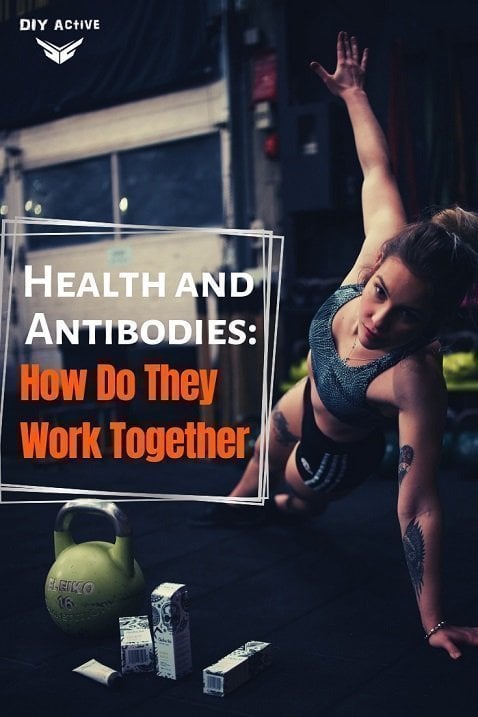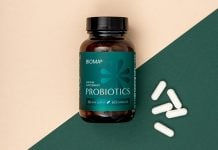
Health and Antibodies: What you need to know
Antibodies, also known as immunoglobulins, are specialized Y-shaped proteins produced by the immune system’s plasma cells to help fight against pathogenic bacteria and viruses. The antibodies recognize a unique molecule of the pathogen known as antigens, leading to an immune response which, in turn, destroys the harmful, foreign invaders of the body.
Your health and antibodies
The immune response prompted by the antibodies is exceedingly complex and highly specific.
By the time a foreign substance infiltrates the body, the immune system recognizes it as “alien,” pointing to the fact that the antigen molecules are different from those found in the body.
The immune system then activates various mechanisms, such as antibody production, to get rid of the harmful invaders. The plasma B cells, which are specialized white blood cells, produce antibodies.
The binding of an antigen to the plasma cells’ surface prompts the plasma cells to separate and develop into a group of identical cells known as a clone.
 After that the antibodies go in a different direction, attacking and neutralizing the antigens that are identical to the ones that caused the immune response.
After that the antibodies go in a different direction, attacking and neutralizing the antigens that are identical to the ones that caused the immune response.
The Y-shaped proteins which are the so-called antibodies contain anti-toxins that are specific to a particular type of bacteria and viruses.
For instance, if the body produces an antibody to the influenza virus and you’re exposed to the virus, the antibody specific for it will arrive and utilize its Y to bind to the harmful influenza virus.
As a result, it will destroy the virus and keep you in a healthy state.
The Five Types of Antibody
Aside from the fact that antibodies respond to various targets, they also come in different types known as classes or isotypes.
By defining these different antibody isotypes, we can glean insights into the role of the antibodies as protectors of our health. So here are the five types of antibodies for your knowledge.
1. IgG
Is an antibody isotype developed through immunization? This antibody triggers an immune response that can get rid of certain toxins and neutralize infections. IgG is composed of a single Ig subunit, and it comes in multiple forms that circulate throughout the body.
It also helps in protecting infants by taking advantage of the mother’s immune response because this antibody can cross the placenta during pregnancy.
2. IgA
Is an antibody isotype located in mucosal areas like the vagina and the mouth? It can also be detected in breast milk, tears, and saliva. IgA is made of two Ig subunits, and it helps in keeping pathogens from holding onto epithelial cells.
However, when IgA targets cells it’s supposed to ignore, it can cause autoimmune disorders, such as celiac disease.
3. IgM
Is an antibody isotype created after a pathogen has infiltrated the body? It has an extremely high avidity as it’s composed of five Ig subunits tied up together, which means it binds very firmly to its target.
This antibody is essential in the initial phases of infection. In the reactivation of disease and re-exposure to a virus it was previously eliminated, and IgM can also appear to do its protective work.
4. IgE
Is an antibody isotype that is crucial in prompting an allergic response. It’s typically located in the skin, lungs, and mucosal areas.
Once it sticks to an allergen, the IgE stimulates the histamine reaction which, in turn, produces symptoms of an allergic attack. IgE is also essential in protecting the body from parasitic worms.
5. IgD
Is an antibody isotype that is crucial in the initial stages of an immune response. After binding to B cells, IgD doesn’t circulate through the body. Instead, it signals them to become active.
Right now, there isn’t a clear understanding of its function. Thus, more research is needed for that purpose.
The Role of Antibodies in Disease Diagnosis
A lot of diagnostic tests for various diseases are done by looking at an antibody response than the pathogen itself.
Take, for instance, an enzyme-linked immunosorbent assay that is used to diagnose diseases, including syphilis, HIV, and Lyme disease.
However, there are also disease diagnoses that use nucleic acid tests like PCR and LCR, which look directly for a pathogen. These diagnostic tests are alternatives to antibody testing.
But back to the role of antibodies in disease diagnosis, one medical condition that still uses antibodies for determining its degree and activity is herpes. Such a test can also figure out between the latest and old, unnoticed herpes infections by looking for two different antibody isotypes the body is potentially producing.
IgM tests that proved positive typically mean that the infection is new, while positive IgG tests reveal an old infection.
Ways That You Can Raise Antibodies
Although antibodies are often activated through encounters of the body with bacteria or viruses, several factors can influence the production of antibodies in your body, and that includes your state of well-being, physical fitness, and diet.
So here are the ways how to maximize those factors for you to raise more antibodies in your system.
Physical Exercise
Physical exercise is essential for your overall health. So it’s advisable to try doing a bout of physical activity for at least 15 to 30 minutes daily or three times weekly to improve your cardio and blood circulation.
Aside from the fact that it prevents serious problems, such as hypertension and heart disease, physical exercise also boosts your antibody production by 300 percent.
Have a Healthy Diet
One of the ways that you can do to strengthen your immune system is to follow a healthy diet.
It’s essential to eat foods that are rich in minerals and vitamins, such as vitamin E, vitamin C, omega-3 fatty acids, and carotenoids.
These nutritious elements typically found in fruits, vegetables, fish products, and whole grains are a big help in increasing and maintaining the levels of antibodies in your body.
Maintain a Happy Outlook in Life
You can make it your goal to have a happy and contented outlook in life. According to studies, having a positive outlook tends to increase the antibodies in your system.
So it’s advisable that you stay away from stress and lead a positive mental attitude for that purpose.
Also, eating a healthy diet and exercise can make you happier. So you can simply follow the tips mentioned previously to achieve this third goal of yours.
Wrap Up
Antibodies are essential to ward off bacteria and viruses and protect the body from severe medical conditions and diseases.
That’s why we need to understand better how our health and antibodies work together, their role in diagnostic testing, and how a healthy lifestyle can increase the antibodies in our bodies.



